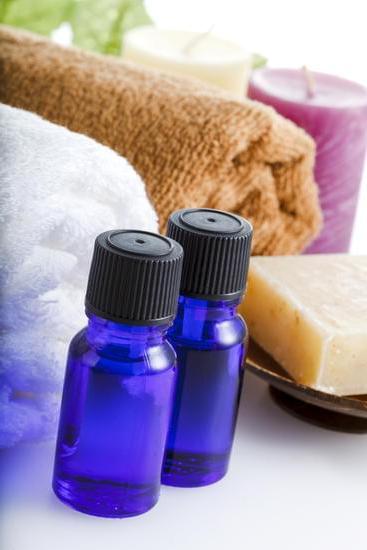Aromatherapy is a popular holistic treatment that uses essential oils to promote physical and emotional well-being in humans. But is aromatherapy safe for pets? This question has sparked much debate among pet owners and veterinarians alike. While some swear by the benefits of aromatherapy for their furry friends, others caution against its use due to potential risks and dangers.
Before delving into the world of aromatherapy for pets, it is essential to understand what essential oils are and how they can affect animals. Essential oils are highly concentrated plant extracts that contain potent properties. When inhaled or applied topically, these oils can have various effects on pets, from promoting relaxation to alleviating certain health issues.
While aromatherapy has been known to offer many benefits for pets, such as reducing anxiety, improving mood, and even aiding in physical ailments, there are also potential risks involved. It is crucial for pet owners to be aware of the possible dangers of using essential oils on their animals, including toxicity and skin irritation. Understanding the safe essential oils for pets and proper usage can help mitigate these risks while still reaping the benefits of aromatherapy.
Understanding Essential Oils and Their Effects on Animals
What Are Essential Oils?
Essential oils are highly concentrated volatile compounds extracted from plants, known for their therapeutic properties. These oils are commonly used in aromatherapy for their various benefits, including promoting relaxation, reducing anxiety, and even aiding in physical ailments. However, it is essential to understand that essential oils are potent substances that can have powerful effects on animals due to their sensitive nature.
Effects of Essential Oils on Animals
When it comes to using essential oils around pets, caution must be exercised as some oils can be toxic to different species. Cats, for example, lack specific enzymes needed to metabolize certain compounds in essential oils and can experience severe reactions when exposed. Dogs also have varying sensitivities to different oils based on their breed and size. It is crucial to research and understand the potential effects of each oil before introducing them into your pet’s environment.
Considerations for Using Essential Oils With Pets
Before incorporating any essential oils into your pet’s routine, consultation with a veterinarian is strongly recommended. A professional opinion can help determine the safety and effectiveness of using aromatherapy for your specific pet. Additionally, always dilute essential oils properly as directed by a reputable source or professional. Monitoring your pet for any adverse reactions and discontinuing use if any signs of distress appear is crucial in ensuring the well-being of your furry companion.
Common Benefits of Aromatherapy for Pets
Aromatherapy has gained popularity not only for humans but also for pets in recent years. The use of essential oils and aromatherapy techniques can provide various benefits to our furry friends. One of the primary benefits is that it can help calm and relax pets who may suffer from anxiety or stress. Essential oils like lavender or chamomile can have a calming effect on pets, making it useful during stressful situations such as thunderstorms, fireworks, or vet visits.
Another significant benefit of aromatherapy for pets is its potential to alleviate certain physical conditions. Essential oils like peppermint or ginger can help with digestive issues in pets, while eucalyptus or tea tree oil can aid in relieving respiratory problems. Additionally, some oils have antibacterial and antifungal properties that can promote overall skin health in pets when used correctly and in the right dilution.
Using aromatherapy for pets can also strengthen the bond between pet owners and their animals. By incorporating aromatherapy into your pet’s routine, you create a positive association with scents that can help reinforce training cues or simply create a more harmonious environment at home.
However, it is important to note that not all essential oils are safe for pets, and proper research should be conducted before introducing any new products. Consulting with a veterinarian experienced in aromatherapy for pets is essential to ensure the safety and well-being of your furry companion.
| Benefits of Aromatherapy for Pets | Examples |
|---|---|
| Calms anxiety and stress | Lavender, Chamomile |
| Alleviates physical conditions | Peppermint, Ginger |
| Strengthens bond between pet owners and animals | Create positive associations with scents |
Potential Risks and Dangers of Aromatherapy for Pets
Aromatherapy, while often beneficial for humans, can pose risks and dangers to our beloved pets if not used with caution. It is crucial to understand that animals have a different sensitivity to essential oils compared to humans.
Some essential oils that are considered safe for us can be toxic to pets, leading to a range of health issues. For example, oils such as tea tree, peppermint, and citrus oils are known to be harmful to cats and dogs when ingested or applied directly on their skin.
One of the main concerns with aromatherapy for pets is the potential for toxicity from certain essential oils. Symptoms of toxicity in pets may include vomiting, lethargy, difficulty breathing, and even liver damage in severe cases. It is essential for pet owners to do thorough research on the effects of specific essential oils before using them around their furry companions. Always remember that what may be safe for you might not necessarily be safe for your pet.
In addition to toxicity risks, another danger of aromatherapy for pets is improper use of diffusers or direct application of essential oils. Diffusing oils in an enclosed space without proper ventilation can overwhelm your pet’s sensitive respiratory system. Similarly, applying concentrated essential oils directly onto their fur or skin without dilution can lead to irritation or allergic reactions. Pet owners must always dilute essential oils properly and use them in moderation when introducing aromatherapy to their furry friends.
| Potential Risks and Dangers | Aromatherapy for Pets |
|---|---|
| Toxicity from certain essential oils | Can lead to health issues like vomiting and liver damage |
| Improper use of diffusers or direct application | May cause respiratory issues or skin irritation |
Safe Essential Oils for Pets and How to Use Them
Aromatherapy for pets is a growing trend among pet owners looking for natural ways to improve their furry friends’ well-being. Essential oils, when used correctly, can offer various benefits for pets, such as reducing anxiety, alleviating skin conditions, and promoting relaxation. However, it is essential to understand which essential oils are safe for pets and how to use them properly to avoid any potential risks.
When it comes to choosing essential oils for your pets, not all oils are created equal. Some essential oils can be toxic to animals if ingested or applied in high concentrations. It is crucial to only use high-quality, pure essential oils that are safe for pets. Here are some safe essential oils for pets and how you can safely incorporate them into your pet’s routine:
- Lavender oil: Known for its calming properties, lavender oil can help reduce stress and anxiety in pets. Dilute a few drops of lavender oil with a carrier oil like coconut oil and diffuse it in the air or apply it topically on your pet’s bedding.
- Chamomile oil: Chamomile oil is excellent for soothing skin irritations and relieving digestive issues in pets. Mix a few drops of chamomile oil with water in a spray bottle and lightly mist your pet’s fur or bed.
- Cedarwood oil: Cedarwood oil is beneficial for repelling fleas and ticks naturally. Mix a few drops of cedarwood oil with water in a spray bottle and spritz it on your pet’s coat before outdoor adventures.
It is essential to introduce aromatherapy to your pet slowly and observe how they react to the scents. Start by diffusing the diluted essential oils in the air or applying them lightly on your pet’s belongings before directly using them on your pet’s fur or skin. Monitor your pet for any signs of discomfort or adverse reactions, such as excessive drooling, sneezing, or lethargy. If you notice any unusual behavior, discontinue use immediately and consult with a veterinarian.
When using aromatherapy for pets, always prioritize their safety above all else. By choosing safe essential oils and following proper usage guidelines, you can harness the benefits of aromatherapy to enhance your pet’s overall well-being without compromising their health. Remember that consulting with a veterinarian before starting any new holistic treatments is essential to ensure that aromatherapy is suitable for your specific pet’s needs.
How to Introduce Aromatherapy to Your Pet Safely
Aromatherapy can be a wonderful way to help improve your pet’s well-being and overall health, but it is crucial to introduce it safely and carefully to avoid any potential risks. Here are some helpful tips on how to introduce aromatherapy to your furry friend in a safe manner:
- Start Slow: Introduce aromatherapy gradually to your pet by using small amounts of essential oils in a well-ventilated room. This will allow your pet to get used to the scents without overwhelming them.
- Observe Your Pet’s Reaction: Keep a close eye on how your pet reacts to the essential oils. Some pets may show signs of enjoyment, while others may display discomfort or agitation. If you notice any negative reactions, discontinue use immediately.
- Avoid Certain Essential Oils: Some essential oils can be toxic for pets, so it is important to do thorough research before using any oils around your furry companion. Essential oils like tea tree, cinnamon, and citrus oils should be avoided as they can be harmful if ingested or inhaled by pets.
It is important to note that not all essential oils are created equal, so it is crucial to choose high-quality products that are specifically formulated for use with animals. Look for reputable brands that offer pure and natural essential oils designed for pets.
When introducing aromatherapy to your pet, always consult with a veterinarian first. They can provide valuable guidance on which essential oils are safe for your specific type of pet and any other considerations you should keep in mind. Remember that each animal is unique, so what works for one pet may not work for another. By following these guidelines and seeking professional advice, you can safely incorporate aromatherapy into your pet’s routine for their benefit and well-being.
Tips for Choosing High-Quality Aromatherapy Products for Pets
Aromatherapy for pets has gained popularity in recent years as pet owners seek natural ways to improve their furry companions’ well-being. However, when it comes to choosing aromatherapy products for pets, it is crucial to prioritize safety and quality above all else. With a plethora of options available in the market, pet parents must be diligent in selecting high-quality products that are safe for their beloved animals.
Look for 100% Pure Essential Oils
When choosing aromatherapy products for your pets, opt for essential oils that are 100% pure and of therapeutic grade. Avoid products that contain synthetic fragrances or additives, as these could be harmful to your pet’s health. Reputable brands will provide information on the sourcing and extraction methods of their essential oils, giving you peace of mind about the quality of the product.
Avoid Toxic Ingredients
Be sure to carefully read the ingredient list of any aromatherapy product you plan to use on your pet. Some essential oils can be toxic to animals, especially when ingested or applied in large amounts. Common toxic essential oils for pets include tea tree oil, clove oil, and citrus oils. To ensure the safety of your pet, choose products that do not contain any ingredients that are known to be harmful to animals.
Seek Recommendations From Pet Professionals
If you’re unsure about which aromatherapy products are safe and suitable for your pet, don’t hesitate to consult with a veterinarian or a certified animal aromatherapist. These professionals can provide guidance on choosing the right products based on your pet’s individual needs and sensitivities.
Additionally, they can offer recommendations on how to properly introduce aromatherapy to your pet and monitor any potential reactions. Remember, when it comes to using aromatherapy for pets, always prioritize safety and quality above all else.
Consulting With a Veterinarian
Aromatherapy for pets has gained popularity in recent years as pet owners seek natural remedies to help their furry companions relax, manage stress, and alleviate various health issues. While aromatherapy can offer a range of benefits for pets, it is crucial to consult with a veterinarian before introducing any essential oils to your pet’s routine. This professional guidance is essential to ensure the safety and well-being of your pet.
Veterinarians have the expertise to assess your pet’s individual health needs and recommend the appropriate essential oils that are safe for them. Not all essential oils are suitable for pets, as some can be toxic or irritating when used improperly. By consulting with a veterinarian, you can receive personalized advice on which essential oils are safe and effective for your pet’s specific condition.
Furthermore, veterinarians can provide guidance on the proper dosage and application of essential oils for pets. It is important to follow their recommendations closely to avoid any potential risks or adverse reactions. Additionally, a veterinarian can help monitor your pet’s response to aromatherapy treatments and make adjustments as needed to ensure optimal results. Overall, seeking professional guidance from a veterinarian is key to safely incorporating aromatherapy into your pet’s wellness routine.
Conclusion
In conclusion, the question “Is aromatherapy safe for pets?” is a complex one that requires careful consideration and knowledge of the topic. While aromatherapy can offer numerous benefits to our furry companions, it is crucial to understand the potential risks and dangers associated with using essential oils around animals. By being mindful of the specific needs and sensitivities of different pets, pet owners can introduce aromatherapy safely into their routine.
When using essential oils on or around pets, it is important to choose high-quality products specifically designed for animals. Always dilute essential oils properly before applying them topically or using them in a diffuser. Additionally, it is vital to consult with a veterinarian before starting any aromatherapy regimen for your pet, as they can provide guidance on which oils are safe and appropriate for your pet’s individual needs.
Ultimately, while aromatherapy can be a valuable tool in promoting overall wellness for pets, it should always be approached with caution and mindfulness. By following proper precautions, seeking professional advice when needed, and prioritizing the well-being of our furry friends, pet owners can safely incorporate aromatherapy into their pet care routine for a harmonious and beneficial experience.
Frequently Asked Questions
Is Aromatherapy Safe for Dogs and Cats?
Aromatherapy can be safe for dogs and cats, but certain oils can be toxic to them. It’s important to consult with a veterinarian before using any essential oils on or around pets to ensure their safety.
Can You Diffuse Essential Oils Around Pets?
Diffusing essential oils around pets can be risky, as their sense of smell is much stronger than humans. Some oils may cause respiratory issues, skin irritation, or other adverse reactions in pets. Always monitor their reactions closely.
Are Essential Oils Safe for Animals to Smell?
While some essential oils are safe for animals to smell, others can be harmful or toxic. It’s crucial to research and ensure that the oils being used are pet-friendly. When in doubt, it’s best to avoid diffusing oils around animals altogether.

Are you looking for a natural way to improve your health and wellbeing?
If so, aromatherapy may be the answer for you.





